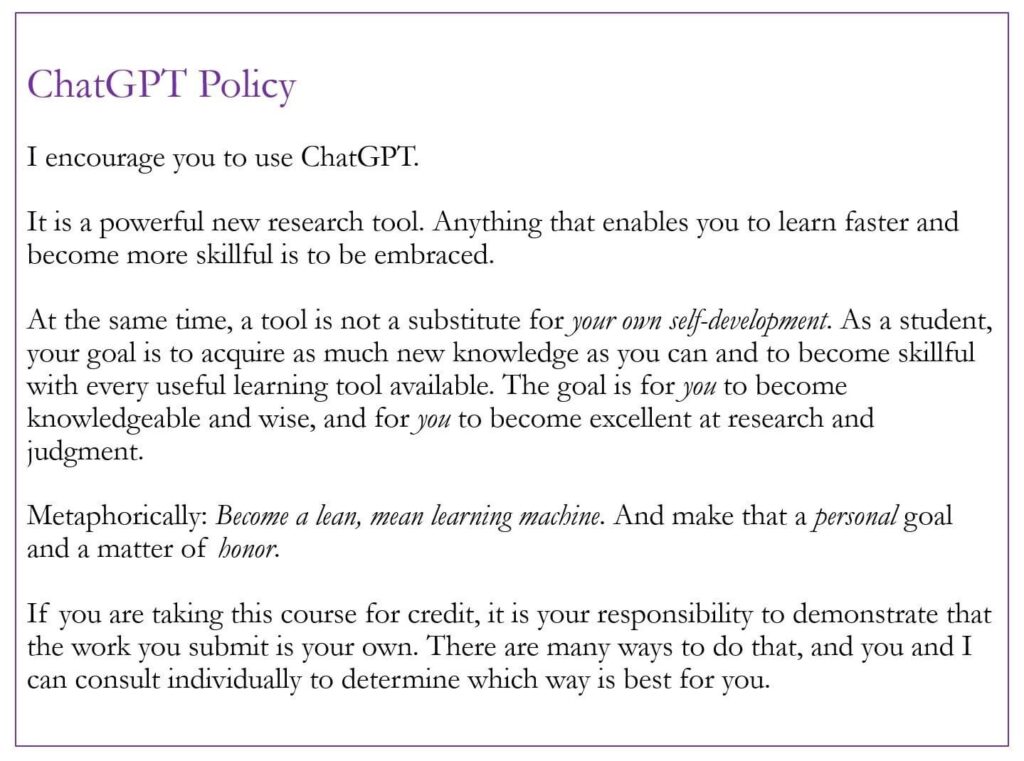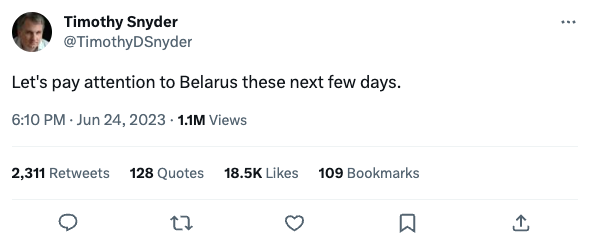ChatGPT
My policy on ChatGPT (or other other Large Language Learning Models (LLM)) is a simple one:
- Treat ChatGPT as the equivalent of your parents.
What doe this mean?
✅ You are allowed to ask it questions.
✅ You are allowed to get advice on writing.
❌ You are not allowed to submit any text that it generates as your own work.
❌ You are not allowed to submit any text into another piece of software that rewrites it.
The issue is accountability. An attribution of authorship carries with it accountability for the work, which cannot be effectively applied to ChatGPT. When you submit a piece of assessment the aim is to establish your unique understanding, as opposed to the understanding of your parents, or ChatGPT. This means that while you can use a wide variety of inputs to provide help, any output needs to be generated, and “owned” by yourself.
If you have found a way to automate your work, such that anyone (or anything) else can follow the steps that you take and create the same output, you have succeeded in finding efficiencies, and possibly even generated important knowledge, but you have failed to complete the assignment you were set. Your formal assessment is intended to establish your ability, as a human, to complete the task. It is not intended to establish your capability to use technology to meet an objective. That is why submitting other people’s work (whether it’s your parents, or ChatGPT) is fraud.
An inaccurate analogy would be to treat ChatGPT like software, such as Microsoft Word. It is obviously not cheating to type answers in a word processor, and use spelling or formatting advice to improve your work. Unlike Word, however, ChatGPT goes beyond helping your writing to actually help with content. It is more of an oracle than a piece of software. Therefore I think it’s better to imagine it as a helpful person. Or, as Cowen and Tabarrok (2023) say in this very useful article about how to use ChatGPT,
“It resembles collaborating with a bright and knowledgeable research assistant, albeit one from a different culture.”
- Be specific with your prompts
- Ask for comparisons and contrasts
- Ask for lists
- Ask follow up questions
I recommend this article:
- Student Use Cases for AI, by Ethan Mollick and Lilach Mollick, September 25, 2023
I also recommend developing some custom instructions. Here are Eli Dourado’s.
I also like this graphic:

If you decide to use ChatGPT you should be honest and open about it, and provide an appropriate discussion in the Methods section (or, if a Methods section is not used, a suitable alternative part) of the manuscript. That will allow your advisor and committee to establish whether your use is appropriate. If you decide to use ChatGPT but don’t explain how, this is fraud. In some cases, it may be that use of ChatGPT is so heavy it warrants being a co author. This is fine if you list ChatGPT as a co author, and you can do this for other types of work, but a thesis or other formal assessment must be single authorship.
Finally, ethical behaviour is important. Therefore:
- Just because other people do something wrong, doesn’t mean you should.
- A thesis isn’t just about producing the best piece of work, it’s about demonstrating your knowledge of research methods (which includes ethical design and execution) and your ethical decision making.
- If you’re not sure, ask for help.


